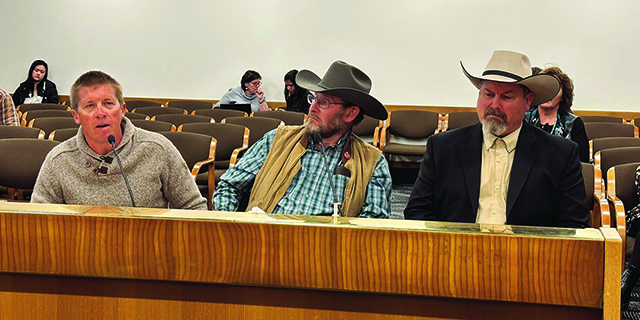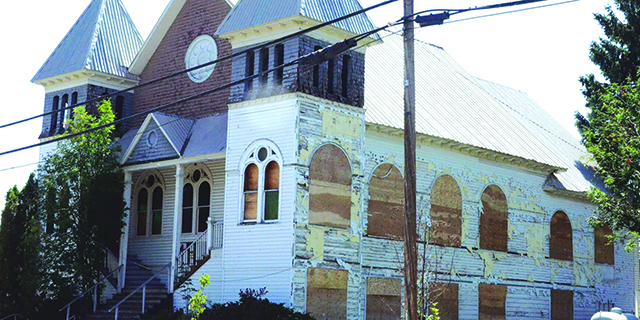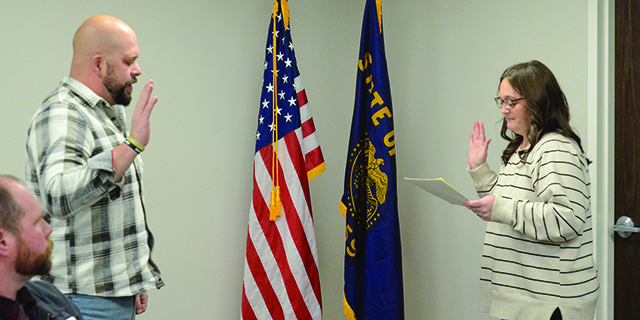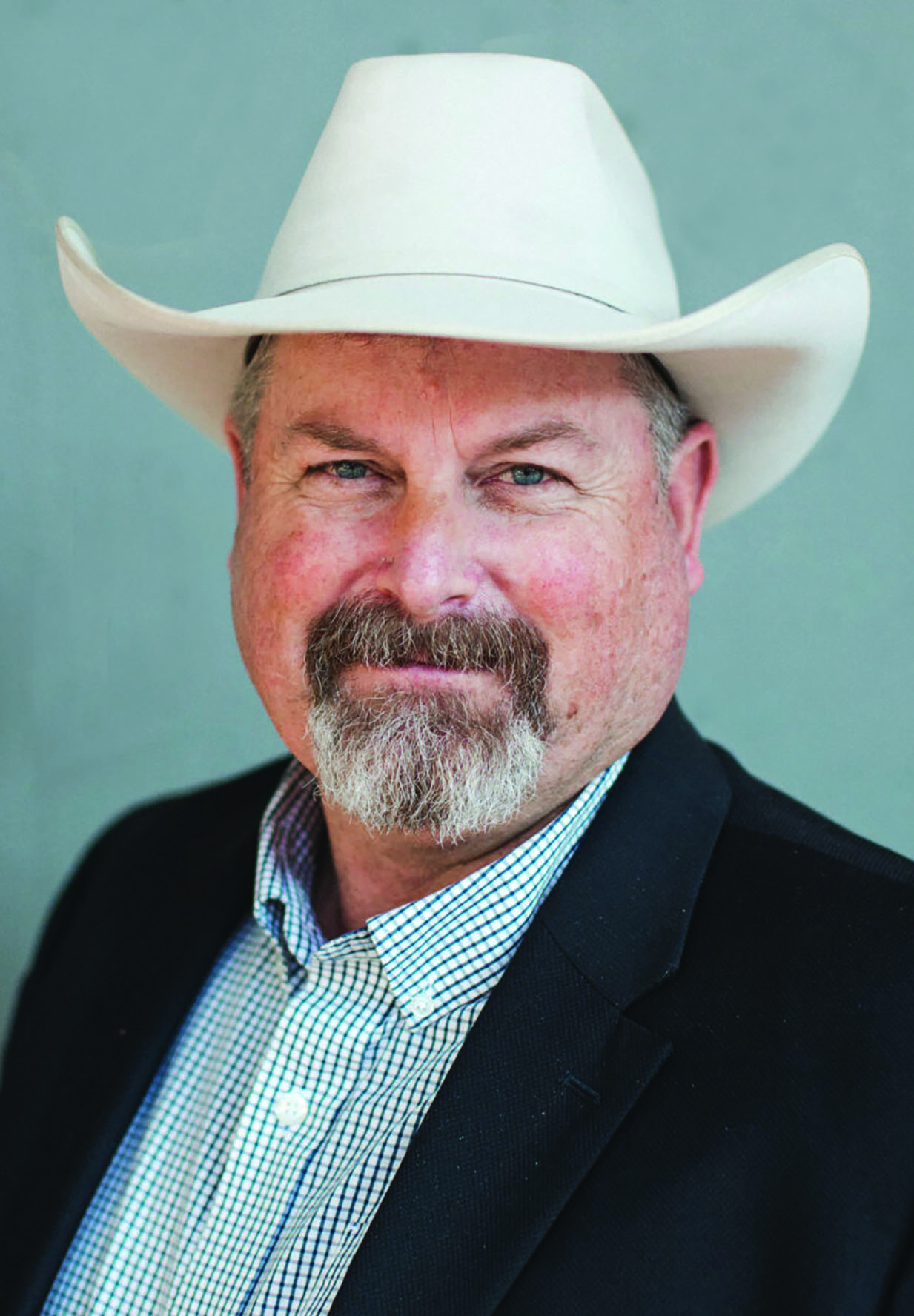GUEST COLUMN: Marines’ duty on tank is hot, dangerous
Published 4:00 pm Tuesday, November 27, 2012
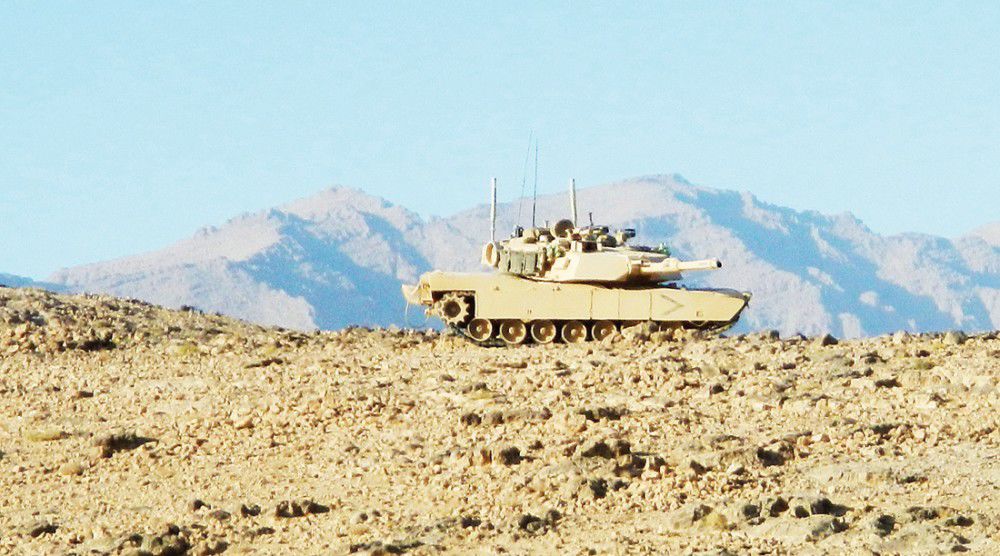
- <p>An M1A1 Abrams main battle tank positioned on a ridgeline provides machine gun suppression for a Marine convoy that's under attack.</p>
Ive been deployed to Shir Ghazi, Afghanistan for four months. I am responsible for the morale, welfare and tactical employment of four M1A1 Abrams Main Battle Tanks, 18 Marines, one Navy Corpsman, and one M88 Hercules recovery vehicle.
These tanks are amazing pieces of gear. Weighing in at 70 tons and powered by a 1,500 horsepower turbine engine with armor as thick as a WWII battleships, we can drive over extremely rough terrain at over 40 miles per hour while shooting accurately to a distance of over 2 miles. My platoon burns about 2,000 gallons of diesel fuel every day we operate. When my quarter-million tons of steel goes somewhere the ground shakes for a half-mile on all sides of us. With all that technology, however, the government forgot the air conditioning, and in the summers heat temperatures reached 150 degrees inside the tanks.
Trending
The greatest threat in this war is Improvised Explosive Devices and the best way to hit them is to drive down a road where people expect you to go. Ive enjoyed a lifetime of not doing what was expected and I treat my battlespace maneuver the same way. Between driving through a freshly planted or meticulously flood-irrigated field and having one of my tanks hit a bomb I choose the former, but it doesnt win peoples hearts and minds like our strategy dictates. I avoid damaging the Afghans property right up to the point where not doing so increases the threat to my Marines. Every time I have to drive through a field I think about the amount of effort farmers in Wallowa County have put into their crops their entire lives.
When the firefights start, mortars land near and among us like lightning on a ridgeline with no place to hide. The shrapnel and bullets pass through our bodies as if we are irrelevant. Blasts from IEDs shred rolled steel and depleted uranium armor, shooting dust a thousand feet high, or fizzle harmlessly beneath you. I have been injured here twice; my protective gear and luck protecting me from jagged shards of metal. Some of my Marines have been injured so badly they will never recover, another was killed. We work on these casualties amidst the bombs and bullets for each other, and for you. While we rise from or fall into the dust of this place you will never see. I hope you spend your freedom well.
This is the environment the Marine Corps has thrived in for 237 years. Of the three of my Marines sent home with serious injuries there is one thing they all have in common. One of them, who couldnt speak for several weeks, echoed the other two verbatim and said as soon as he could speak, I wish I was back there with the platoon. These Marines show each other a loyalty most people will never experience. I have been humbled while bearing witness to the valorous and selfless acts my Marines do on a regular basis.
Strangely, fear is not a big part of our lives here. Neither is hate. Our enemy is faceless because he wears no uniform and does not fight in the open. The Pashtun people, Southern Afghans, pass along revenge like an heirloom from one generation to the next. They demonstrate the indefinite patience of their IEDs. (The older IEDs are called legacy IEDs, some of which are mines left over from when the Soviets invaded Afghanistan.) We drive on knowing that at any moment we might hit an IED, resigned because chance is a fact of our lives here, and it is exhausting.
Most of the folks near me are farmers and herders who dedicate their lives to tending a crop or some animals to provide for their families. They are a people hardened by their geography and infinitely respectable for the amount of work it takes them to survive. They have suffered the Americans, Taliban, Russians, Persians, Mongols and other would-be conquerors for thousands of years.
Wherever we go we see children, the future of Afghanistan, and as they beg for food, then throw rocks at us when we do not give them any, I cannot help but be discouraged. My purpose here is to protect my Marines while presenting ourselves for a fight so that neither Taliban nor Al Qaeda need travel to America to find one. In that we are succeeding.
Trending
1st Lt. James Nash, a 2004 graduate of Enterprise High School, is a fifth-generation Wallowa County resident, the son of Todd Nash and Liza Nichols. He graduated from the University of Montana-Western in 2009 with a bachelors degree in Literature and Writing and joined the Marine Corps in January 2010. A brother, Josh Nash, is in the Navy and a cousin, Shawn Phillips, is in the Marine Corps. Both are Wallowa County residents.


